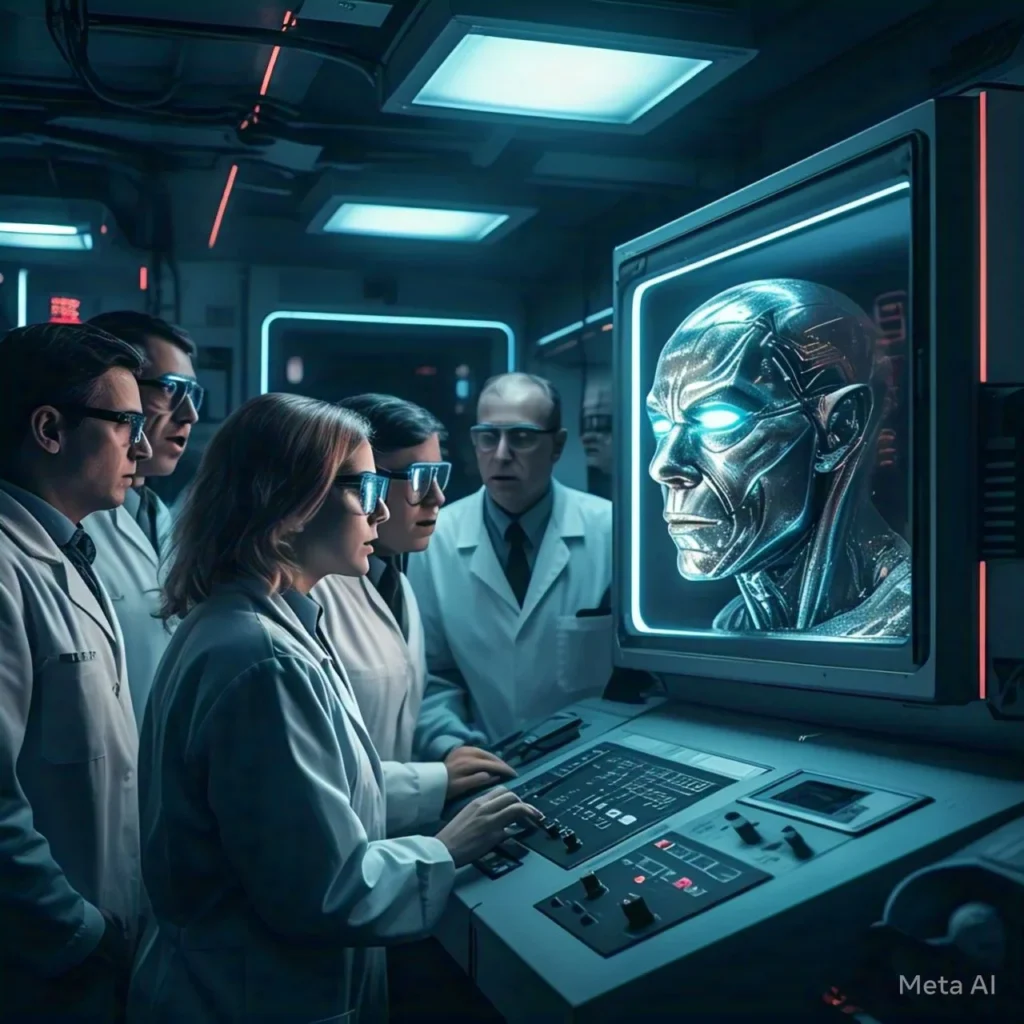Embracing 'Meta Face': How AI is Redefining Beauty Norms
In the ever-evolving landscape of technology, artificial intelligence (AI) has emerged as a transformative force, reshaping industries, economies, and even societal norms. One of the most intriguing developments in recent years is the rise of the “Meta Face”—a concept that blends AI, augmented reality (AR), and virtual identity to redefine traditional beauty standards. As we navigate this new era, the Meta Face is not just a technological innovation; it is a cultural phenomenon that challenges our perceptions of beauty, identity, and self-expression.
The Birth of the Meta Face
“Metaface” refers to the use of AI-powered tools to create idealised or altered versions of humans’ faces. These tools, often integrated into social media platforms, photo-editing apps, and virtual environments, allow users to modify their appearance in ways that were previously unimaginable. From smoothing skin and enhancing features to completely transforming facial structures, the Meta Face represents a shift toward a digital-first approach to beauty.
Platforms like Instagram, Snapchat, and TikTok have popularised filters and AR effects that enable users to present themselves with flawless skin, exaggerated eyes, and perfectly symmetrical features. These filters are not just playful additions; they are shaping a new aesthetic standard-one that is increasingly detached from physical reality. The metaverse is no longer confined to social media; it is becoming a part of our everyday lives, influencing how we see ourselves and others.
Redefining Beauty Norms
For centuries, beauty norms have been dictated by cultural, geographical, and historical contexts. From the Renaissance’s celebration of curvaceous figures to the 20th century’s obsession with thinness, these standards have always been fluid. However, the advent of AI and MetaFace is accelerating this evolution by creating a globalised beauty ideal that transcends borders.The face is characterised by hyperperfection: poreless skin, exaggerated facial proportions, and an otherworldly glow. This aesthetic is not tied to any specific ethnicity or culture, making it a universal standard that anyone can aspire to. While this may seem inclusive, it also raises questions about the erasure of individuality and diversity. Are we moving toward a homogenised vision of beauty, where uniqueness is overshadowed by algorithmic perfection?Moreover, the Meta Face blurs the boundaries between reality and fantasy. With AI-generated influencers like Lil Miquela and Shudu Gram gaining millions of followers, it is becoming increasingly difficult to distinguish between real and virtual personas. These digital beings embody the Meta Face ideal, setting a new benchmark for beauty that real humans may struggle to meet.

The Impact on Self-Perception
The rise of the Meta Face has profound implications for self-esteem and mental health. On one hand, these tools empower individuals to experiment with their appearance and express themselves in creative ways. For many, filters and AR effects are a form of escapism, allowing them to present their “best self” to the world.On the other hand, constant exposure to ideal images can lead to unrealistic expectations and a distorted sense of self. Studies have shown that excessive use of beauty filters can contribute to body dysmorphia, anxiety, and low self-esteem, particularly among younger users. The Meta Face, while empowering, also has the potential to exacerbate societal pressures to conform to an unattainable standard.
The Role of AI in Shaping the Future
As AI continues to advance, the Meta Face is likely to become even more sophisticated. Generative adversarial networks (GANs) and deep learning algorithms are already capable of creating photorealistic images of people who do not exist. In the near future, we may see the integration of these technologies into virtual reality (VR) environments, where users can adopt entirely new identities and appearances.This raises ethical questions about authenticity and consent. If anyone can create a Meta Face that looks indistinguishable from a real person, how do we protect against misuse? Issues like deepfakes and identity theft are already a concern, and the proliferation of AI-generated faces could further complicate these challenges.
Embracing the Meta Face Responsibly
The Meta Face is here to stay, and its influence on beauty norms will only grow stronger. As we embrace this new era, it is crucial to strike a balance between innovation and responsibility. Tech companies must prioritise ethical considerations by ensuring that their tools promote inclusivity and mental well-being. Users, too, must approach the MetaFace with a critical eye, recognising that it is a form of digital art rather than a reflection of reality.
Ultimately, the Meta Face is a testament to the power of AI to reshape our world. It challenges us to rethink what beauty means in a digital age and encourages us to celebrate both our physical and virtual selves. By embracing the Meta Face with mindfulness and intention, we can harness its potential to inspire creativity, foster connection, and redefine beauty on our own terms.

Conclusion
The rise of the “Meta Face” marks a pivotal moment in the intersection of technology, beauty, and identity. AI-powered tools are not only transforming how we present ourselves but also reshaping societal beauty norms in profound ways. While the Meta Face offers exciting opportunities for self-expression and creativity, it also raises important questions about authenticity, diversity, and mental health. As we navigate this digital frontier, it is essential to approach these innovations with a critical and mindful perspective. By fostering inclusivity, promoting ethical practices, and celebrating individuality, we can ensure that the Meta Face becomes a force for empowerment rather than a source of pressure. The future of beauty is evolving, and with thoughtful engagement, we can shape it to reflect the richness and diversity of human identity.
Frequently Asked Questions about Embracing 'Meta Face'
The Meta Face is what?
The phrase “metaface” describes the use of generative algorithms, augmented reality (AR), and filters—AI-powered tools—to produce idealized or modified human faces. It marks a turning toward digital-first beauty standards that combine virtual augmentation with reality.
2. How is artificial intelligence changing ideas of beauty?
Perfect skin, overdone features, and symmetry define the worldwide, hyperperfectized beauty ideal produced by artificial intelligence. This norm is impacting people’s view and presentation of themselves and is growingly disconnected from physical reality.
3. Are dangerous beauty filters?
Although beauty filters may be entertaining and inspiring, too much use could lead to low self-esteem, body dysmorphia, and unrealized beauty ideals. These instruments should be used deliberately, and one should understand that they can show unrealistic standards.
4. Describe AI-generated influencers?
Virtual identities produced using artificial intelligence and computer graphics are what AI-generated influencers represent. Two such are Lil Miquela and Shudu Gram, who have amassed enormous social media following. They question the distinction between actual and virtual identities and reflect the Meta Face style.




